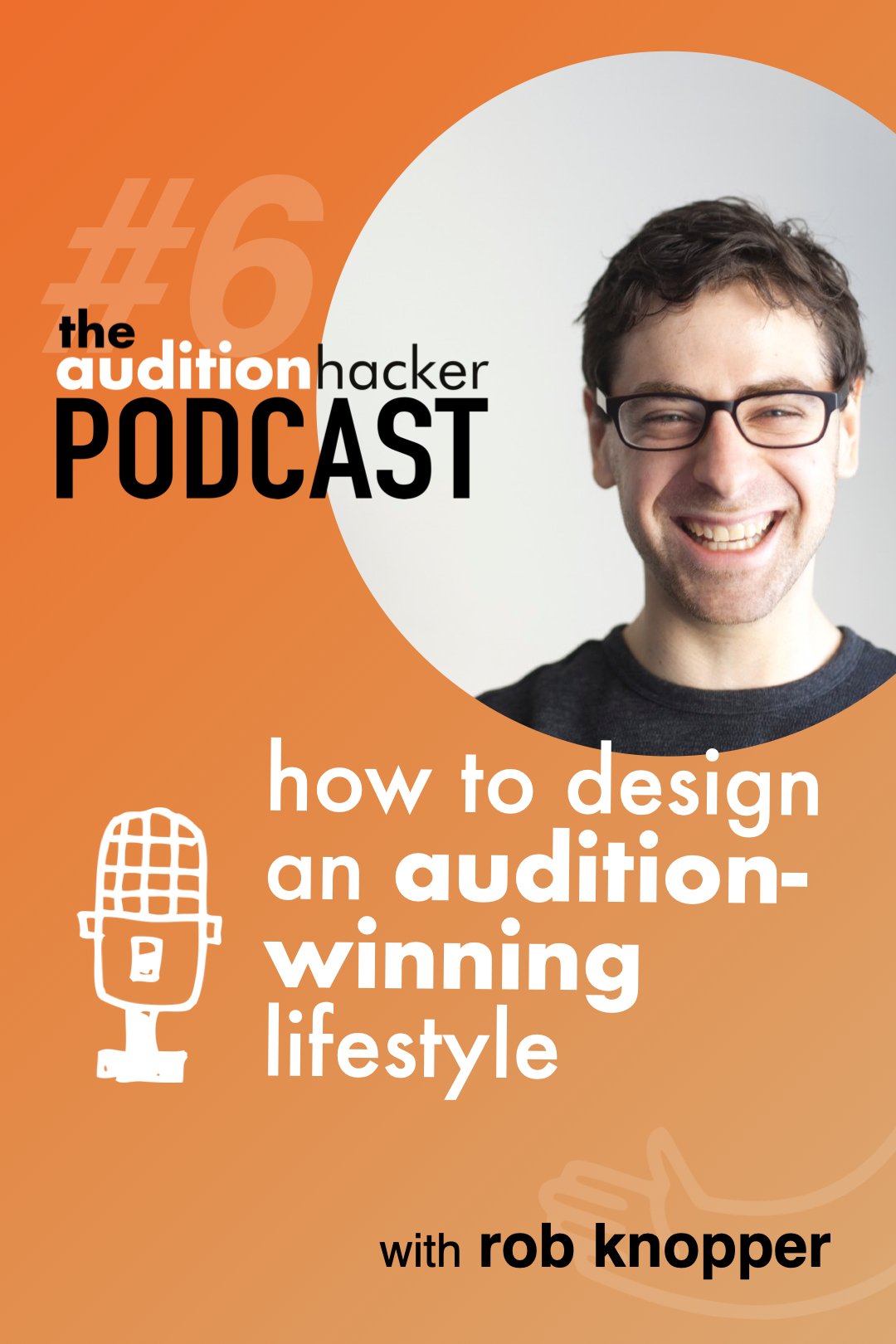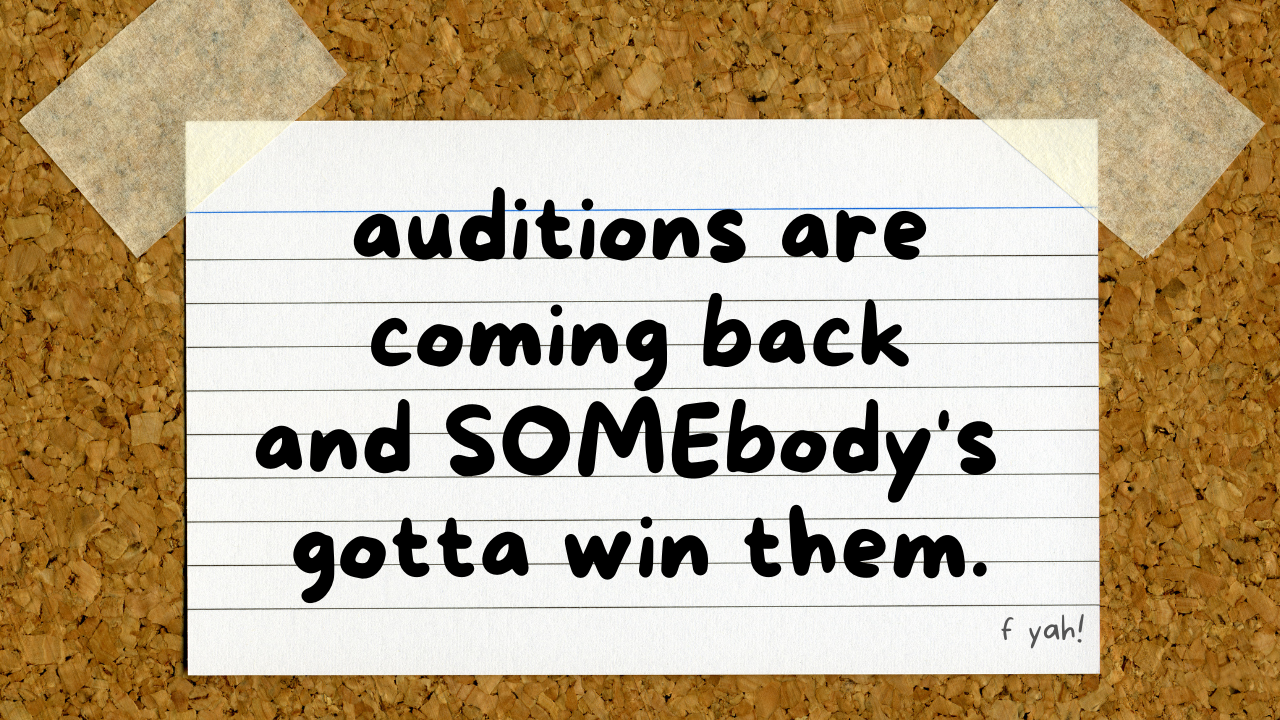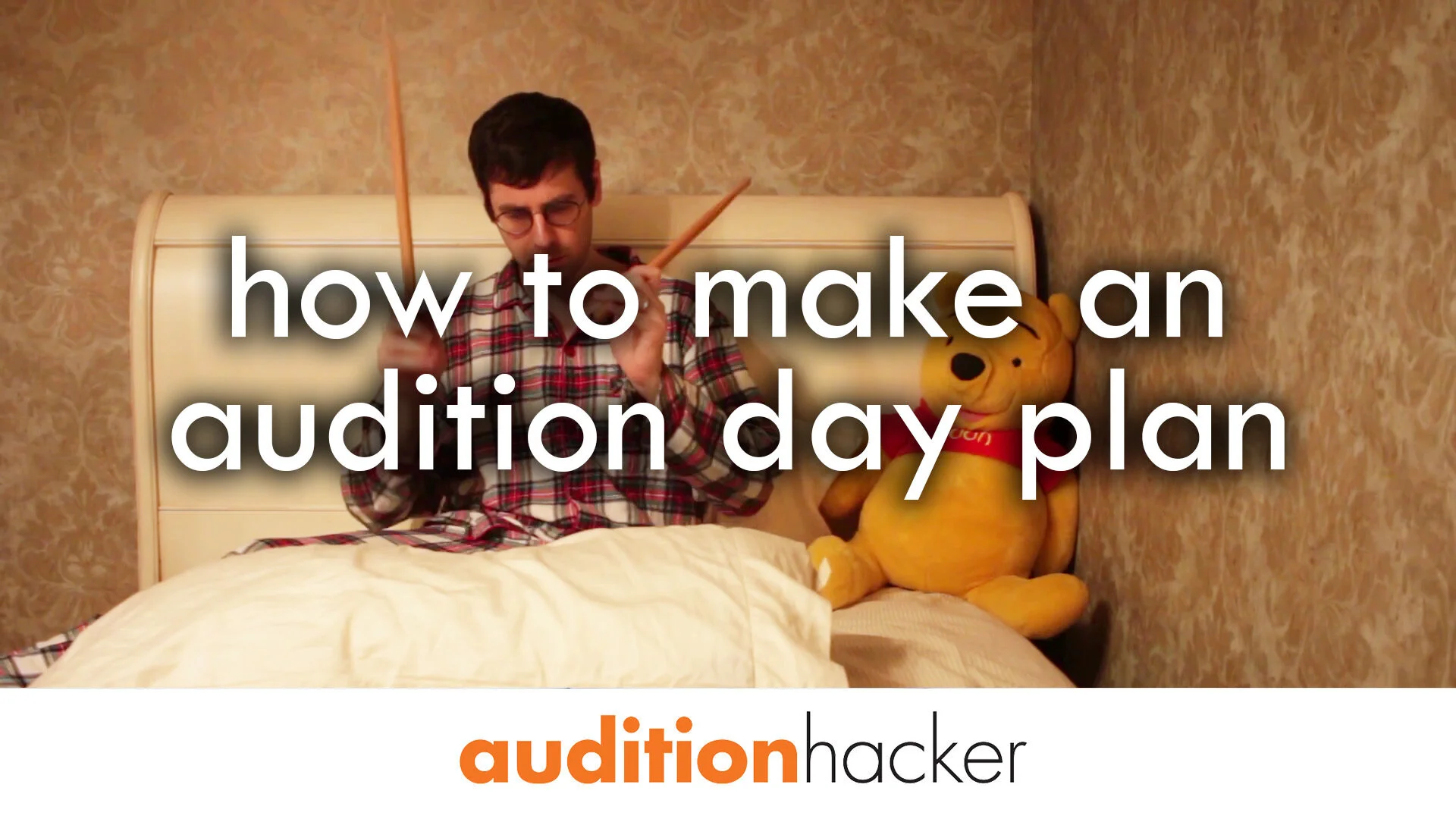your instrument feels unusually heavy as you walk down the hall to the door of the audition room. your head is spinning because, unlike every mock audition, today the audition is actually happening.
the orchestra manager assures you that "it'll be just a minute." the previous candidate is finishing up their last excerpt. it sounds...really good. damn.
the door opens, the player comes out, and the proctor says, "go ahead." as you walk in, you notice the ceiling is tall and the walls are covered with curtains. it's deeper than you expected, and the screen is really high. the light is dimmer than the room you did a lot of your mock auditions in.
your number is announced. "candidate number 65." you walk up to the stand, you take a deep breath, you look at the music, you look at your instrument. the first excerpt, beethoven's 8th symphony, is marked "#1" and you stare at the first few notes in the first bar.
you think to yourself, "i wonder how my instrument sounds in here? should i play it at the tempo i prepared or should it be a little slower? do i need to exaggerate the phrasing in this room?"
you ask yourself: "should i play a few notes before my first excerpt?"
just so you know, it's a dilemma for jurors, too.
this conversation will happen among jurors before the first round of the audition. "are we letting them play a few notes?"
usually, there are a range of opinions on the issue.
opinion #1: "if they're really professionals, they don't need to test their instrument they're not going to be able to test it before every entrance in the orchestra, and they shouldn't need to test it now."
opinion #2: "of course they should be allowed to play a few notes. it's the first time they're playing in the room. let them get comfortable."
opinion #3: "well, they obviously can play a few notes, but i'm sure they understand that we're listening to those notes and they can affect our opinion of the candidate."
as a juror, you have to decide for yourself whether you're going to let someone's prep notes affect your voting decision or not.
but there are some obviously legitimate reasons why you, the player, would play a few notes before your round.
want a head start on audition preparation?
here's my 5-step guide to constructing your preparation process and optimizing it for maximum results.
3 ways to figure out the room.
when you're playing in a big room, you should actually play in a different way than if you're in a small room. any new room will have slightly different audio characteristics. and to make the listener hear what you want them to hear, you need to make tweaks in your performance.
in a small room, for instance, 3 quick, short grace notes will still be clear and noticeable. in a really boomy room, those same grace notes will blend together and sound like a sneaking-in-long-tone. in a big room, you'd have to stretch those grace notes out so that they sound distinct and the committee can actually hear all 3 of them.
in a professional orchestra hall, you might want to increase contrasts between dynamics. you might need to adjust your tempo.
you need to figure out the characteristics of the room in order to make those musical decisions. you need to gather information. that can be done in different ways.
way #1: as you walk into the room, look around. is it a big room? how high is the ceiling? are you on carpet or wood floors? how do you think the sound is going to bounce around? if you've done lots of mock auditions and thought about this during your preparation, it should be relatively simple to look around and determine some specific musical adjustments that will enhance your playing.
way #2: use the first excerpt as a "test." after you've looked around, you sort of have an idea of what you're going to do differently. now, play the first excerpt. as you play, listen to the room. how does the sounds bounce off the walls? do you hear an echo? how do you think the panel is hearing what you're doing? after you've played the first excerpt, you have a deeper idea of what the room is doing to your sound, and you can finesse those decisions you made about how to play.
way #3: play a few notes before the excerpt. this is the controversial one. do you really need to do this? if you can do this, you'll know so much more about the room before you play your first excerpt. you can listen to the notes you play and observe their quality, their resonance, and their length. your first excerpt might be better than it would have been if you didn't play those notes.
so. should you pay those few notes? to me, it's pretty obvious that if the committee couldn't hear you play those notes then you'd do it. obviously. but, the committee hears you. and believe me: they're listening.
playing a few notes is risky. here's why.
unlike someone who DIDN'T play the extra notes, you now have an advantage. you have a better idea of how the cymbals go together. or how your clarinet sounds in the room. you can feel the bounce of the timpani head, or how the reverb affects the sound of your E string.
and when you have the advantage, the committee knows that. they're going to judge you for playing those notes. you're going to get less leeway in the excerpts because you should already know what your instrument sounds like. it's now a part of your audition. it factors in.
if you DON'T play a few notes, but you sound strange on your first excerpt, there's a chance the committee could give you the benefit of the doubt. if, starting on your second excerpt, you play amazingly, they might think you simply had to get used to the room. you could still advance.
but, if you play a scale before your round and you squeak, or you hit some air pockets on cymbals, the committee can hear. they might let it slide if your excerpts sound better after that, but if you mess up the initial notes and then continue to sound less-than-ideal in the first excerpt, that is a definite red flag.
when you play a few notes, you raise expectations. and if you raise expectations then you might be shooting yourself in the foot.
how to decide what to do.
the orchestra might have guidelines about it. if they say not to play a few notes, then obviously don't. you're disqualifying yourself and showing the committee that you don't follow directions. how's that going to look when you're in the orchestra getting a comment from the conductor?
if they don't tell you whether or not you should, it's kind of up to you. if you don't play the notes and you still sound good, that can seem even more impressive to the jurors, especially if some other auditioners are playing them.
the worst thing you can do is to play a few notes just because you can. it should be a last resort if you NEED it. maybe you're struggling to make a decision on what tempo to take in the audition room, or maybe you really need to know which pair of sticks to use for the first excerpt.
and if you do play a few notes, you'd better make sure that you're actually using the information you're gathering. you'd better make expert adjustments and play really friggen' well since you just gave yourself an advantage.
i think it's impressive when students play for me without those few notes at the beginning. and without a disclaimer of "i haven't warmed up." it means they're mature musicians who understand their hands and instrument well enough that they have the confidence that the right thing is going to happen.
i never played notes before my first excerpt. it was hard, too. i came up with a crash cymbal ritual where i would pick up the cymbals, feel their weight, put them together silently, and get all the information i need to play a good sounding first crash.
whatever you do, practice it with mock auditions.
obviously, the point is less about whether you should play a few notes and more about how you're going to figure out what adjustments you need to make as you enter a new room.
like everything in auditions, this should be practiced methodically. what exact set of things are you going to do before you play? are you going to sing the orchestra part in your head to find the tempo? are you going to subdivide 8th notes to get the rhythms in measure 1 right? and when considering how to adjust your performance for the room, how much are you going to tweak things like tempo, grace notes, and dynamic contrasts? these are things you can experiment with at each audition. and each time you try something new, make sure you record the mock audition and listen to it later to figure out exactly how well it worked.
maybe you're doing a mock audition in a big room and you decide to play the grace notes wider and the tempos slower. when you listen later to the recording, was it too much? just right? get comments from the people listening and make a decision on how much you're going to adjust those things for the next mock.
eventually, you'll start getting used to adjusting to the room. maybe you find that playing those two or three notes really really helps and gives you the best chance at an amazing audition performance. you might choose to take the risk and play those extra notes. but if you do, make sure that you're doing plenty of mock auditions to get used to that and how to use the information you learn from those extra notes.
if you're not playing any notes, make sure to practice that in mock auditions. you want to make sure that your ritual when you get into the room is highly developed and comfortable. you need to have confidence in whatever decision you're making in order to have the best audition you can.
what do you do right before you play?
let me know if you have any thoughts about a pre-audition ritual as you enter the room and get ready to play.
learn to dominate your audition preparation.
here's my 5-step guide to constructing your preparation process and optimizing it for maximum results.
















in 2019, a cellist named maria reached out to me about her audition struggles. on paper, she was the “worst audition candidate ever” (her words). she had 2 small children, a full-time teaching job, and hadn’t taken an audition in 4 years.